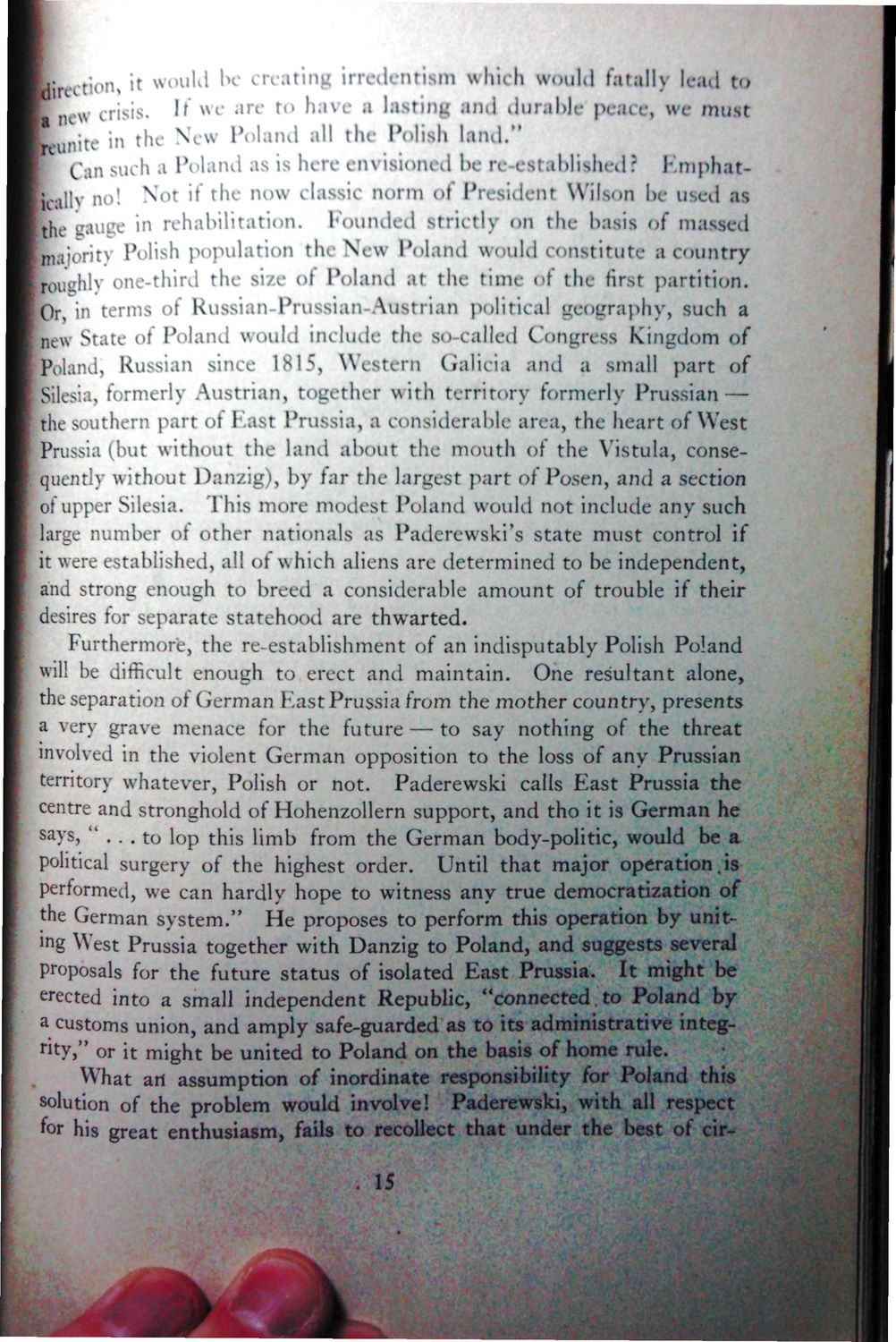| |
| |
Caption: War Publications - WWI Compilation 1923 - Article 24
This is a reduced-resolution page image for fast online browsing.

EXTRACTED TEXT FROM PAGE:
direction, it would be creating irradtntiMu which would fatally lead to crisis. K w< are to have A last rig and durahlr peace, wc must 1 •unite in the New Poland all the Polish land/ Can such a Poland as is lu re en visione I be re-established ? Emphatic ally no! Not if the now classic norm of President Wilson he used as the Gauge in rehabilitation. 1 inded Strictly Oil the basis of massed majority Polish population t h e N w Poland would constitute a country roughlv one-third the size oi Poland at the time of the first partition. Or, in terms of Russian-Prussian-Austrian political geography, such a new State of Poland would include the so-called Congress Kingdom of Poland, Russian since I SI 5, \ \ \ s t e r n Galieia and a small part of Silesia, formerly Austrian, together with territory formerly Prussian the southern part of East Prussia, a considerable area, the heart of West Prussia (but without the land about the mouth of the Vistula, consequently without Danzig), by far the largest part of Posen, and a section of upper Silesia. This more modest Poland would not include any such large number of other nationals as Paderewski *s state must control if it were established, all of which aliens are determined to be independent, and strong enough to breed a considerable amount of trouble if their desires for separate statehood are thwarted. Furthermore, the re-establishment of an indisputably Polish Poland will be difficult enough to erect and maintain. One resultant alone, the separation ot German East Prussia from the mother country, presents a very grave menace for the future — to say nothing of the threat involved in the violent German opposition to the loss of any Prussian territory whatever, Polish or not. Paderewski calls East Prussia the centre and stronghold of Hohenzollern support, and tho it is German he sa ys, " . . . to lop this limb from the German body-politic, would be a political surgery of the highest order. Until that major operation's performed, we can hardly hope to witness any true democratization of the German system." He proposes to perform this operation by unitmg West Prussia together with Danzig to Poland, and suggests several proposals for the future status of isolated East Prussia. It might be erected into a small independent Republic, "connected.to Poland by a customs union, and amply safe-guarded as to its administrative integrity," or it might be united to Poland on the basis of home rule. What art assumption of inordinate responsibility for Poland this solution of the problem would involve! Paderewski, with all respect for his great enthusiasm, fails to recollect that under the best of ciri 15 mu
| |